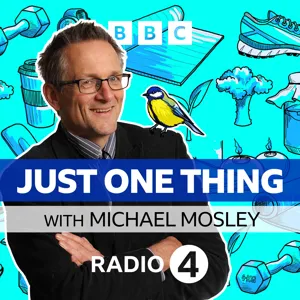#441 BITESIZE | The #1 Lesson From The World’s Longest Scientific Study of Happiness | Robert Waldinger and Marc Schulz

By the end of today’s episode, I’m pretty sure you’ll feel inspired to reconnect with an old friend, phone that family member you don’t see enough of, or make plans for a face-to-face get-together. You’ll feel happier, and even be healthier, if you do because the quality of our relationships determines the quality of our lives.
Feel Better Live More Bitesize is my weekly podcast for your mind, body, and heart. Each week I’ll be featuring inspirational stories and practical tips from some of my former guests.
Today’s clip is from episode 364 of the podcast with co-authors of The Good Life: Lessons From The World’s Longest Scientific Study of Happiness - Professors Robert Waldinger and Marc Schulz.
They are the directors of the Harvard Study of Adult Development which is an extraordinary research project that started all the way back in 1938 and is now in its 85th year.
In this clip they share why having high quality relationships may just be one of the most important things we can do for our happiness and our mental and physical health.
Thanks to our sponsor https://www.drinkag1.com/livemore
Support the podcast and enjoy Ad-Free episodes. Try FREE for 7 days on Apple Podcasts https://apple.co/feelbetterlivemore. For other podcast platforms go to https://fblm.supercast.com.
Show notes and the full podcast are available at drchatterjee.com/364
Follow me on instagram.com/drchatterjee
Follow me on facebook.com/DrChatterjee
Follow me on twitter.com/drchatterjeeuk
DISCLAIMER: The content in the podcast and on this webpage is not intended to be a substitute for professional medical advice, diagnosis, or treatment. Always seek the advice of your doctor or qualified healthcare provider. Never disregard professional medical advice or delay in seeking it because of something you have heard on the podcast or on my website.
Hosted on Acast. See acast.com/privacy for more information.












